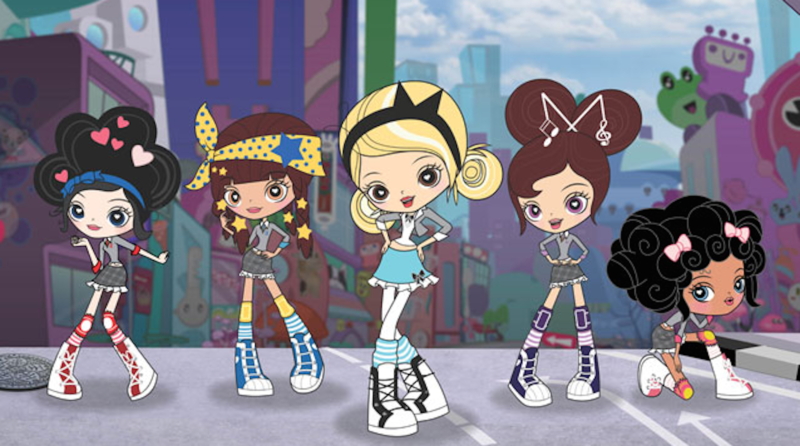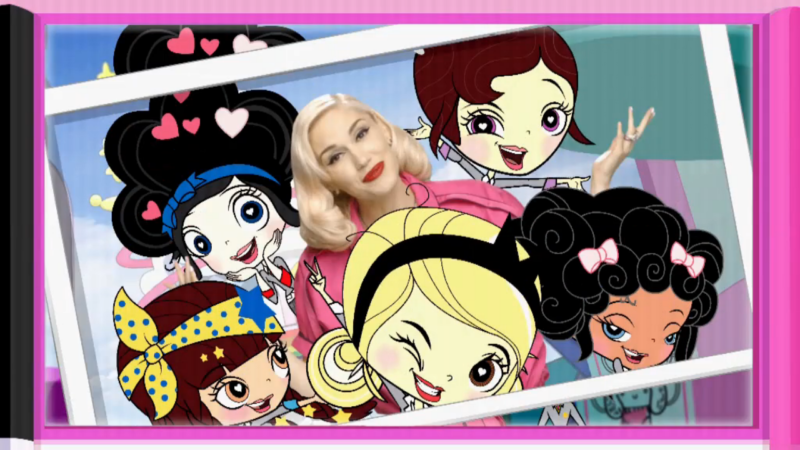Between that, plus the incident in 2012 when No Doubt had to apologize to Native Americans for the "cowboys and Indians-themed" video for "Looking Hot" (which featured Stefani wearing traditional tribal clothing and DANCING IN A TEEPEE), you'd have thought the singer would have learned to question her own appropriation problems before making them yet again.
Nope!
Earlier this week, Nickelodeon announced the Oct. 3 debut of Kuu Kuu Harajuku -- a cartoon that revives Love, Angel, Music and Baby and puts them in a band (named HJ5) alongside a blond named "G" (guess who?). Stefani has said that the animated series is "for young girls" and "celebrates creativity, imagination and individuality." Which sounds great until you see what the characters actually look like:

You might be wondering where the Japanese girls are here. It's hard not to. The school uniforms are still there. And one girl has hair sticks. But these "Harajuku" girls, with their long legs, tiny waists, big boots and oversized, made-up eyes, more closely resemble Bratz dolls (a brand frequently criticized for marketing overly-sexualized female body ideals to tweens) than anything related to Harajuku culture. It seems Stefani (or network executives) thought the best way to deal with the overt cultural appropriation was simply "let's not have them be Asian anymore."
There are Stefani fans who will undoubtedly argue that if she had gone with an animated band of obviously Asian characters, that too would have been culturally insensitive. They will say that Gwen is damned if she does, and damned if she doesn't. But there is a very obvious and simple way for Stefani to avoid any more racial and cultural shadiness here: Just remove the word "Harajuku" from the show. Problem solved!
Gwen Stefani is a well-established enough artist to make a successful animated show about five girls forming a Spice Girls-style band and having adventures without chucking the word "Harajuku" into the title -- especially, seemingly, for the sake of clinging to a problematic theme that she already exhausted 12 years ago. Too late now, though: the show has already been on in Australia for almost a year.
It might seem foolish to be upset about anything Gwen Stefani does at this point. Sure, this is "only" pop music and a children's TV show we're talking about. But to maintain a career this long, in the face of so much criticism, and to continue carelessly running amok with other nations' cultural, religious and traditional symbolism is truly astonishing at this point -- as is hanging onto the thinnest threads of stolen Harajuku girl culture to sell a very American cartoon.
In November of last year, in an interview with Australia's Sunshine Coast Daily, to promote Kuu Kuu Harajuku, Stefani said: "The Harajuku Girls can do anything, they can wear anything, and they can be anything."
Anything, apparently, but inoffensive.



